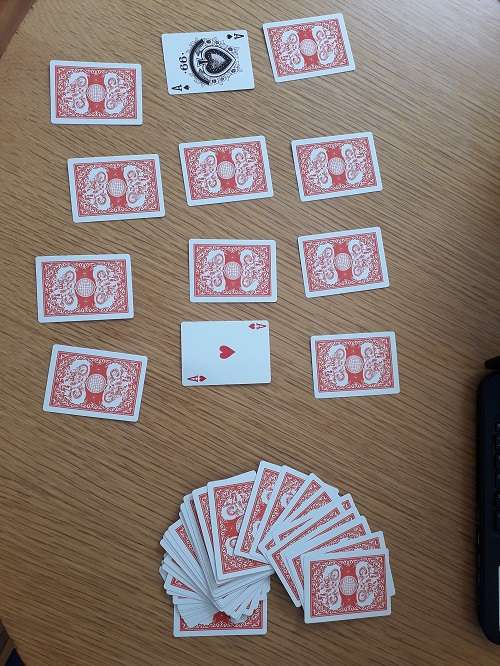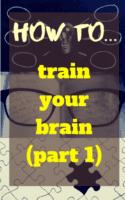The brain, like any other part of your body, needs exercise to stay fit and perform well. Just like physical games strengthen your muscles, mental games help to strengthen your brain and prevent cognitive degenerative diseases, like Alzheimers and Dementia.
Memory games and puzzles, as well as strategy games like chess, can train your brain and have lots of long-term benefits. If you do them often they will help you to:
• Improve your concentration and focus
• Increase your short-term memory
• Develop problem-solving skills
• Think creatively and ‘out of the box’
• Improve your spelling and vocabulary
• Improve your addition and multiplication
• Recognise patterns
• Think strategically
And they will definitely provide hours of fun and relaxation, leaving you with a feeling of satisfaction and achievement when you have completed a puzzle or made the LONGEST word in Scrabble!
Some of the old favourites are still the best: Scrabble and crosswords are great for improving spelling and vocabulary, and for learning to think strategically before you make your moves. If you like numbers and patterns then give Sudoku a go. It’s highly addictive and can be a great way to unwind.
Here are some Memory and Logic games that you can enjoy on your own or with friends, and which will definitely keep your mind active!
Matching Cards
[You will need a deck of playing cards]

• Take a deck of cards and remove all the diamonds and clubs.
• Then remove all the face cards. (Kings, Queens, Jacks)
• In the remaining deck are 20 card, from Ace to Ten (just hearts and spades)
• Shuffle the cards and place them face down
• Flip the cards over two at a time and try to match the cards.
• Anytime you match 2 cards remove them from the table.
• Try to clear the table in as few turns as possible.
*You can make your own ‘picture cards’ to play the same game with children. Draw pairs of everyday things that are easily recognisable on the cards. This is a fun way to play with kids and it’s great for their development too!

What’s missing?
[You will need a tray and 10-15 everyday objects]
• Take it in turns to be the ‘leader’
• The leader chooses 10-15 everyday objects and puts them on a tray (eg. a comb, a pencil, a key, a stone etc)
• The leader shows the other players the tray and gives them 20/30 seconds to memorise everything on the tray.
• The leader then takes the tray away and removes three things from it.
• The leader shows the tray to the players again and they guess which three things are missing.
*(As you get better at the game you can: increase the number of things on the tray; decrease the time you get to remember them; increase how many things are removed etc)
Logic puzzles
These are real brain-stretchers! They develop ‘lateral thinking skills’ – solving problems in an ‘out of the box’ creative away, by looking at it in a new and unusual light!
Here are a few for you to try!
1. Crossing the River
A traveler comes to a riverbank with a wolf, a goat, and a head of cabbage. He finds a boat there that can hold himself and one other. How does he get his animals and cabbage across safely? He cannot leave the goat alone with the wolf, for the wolf would eat the goat; and he cannot leave the goat alone with the cabbage, for the goat would eat it.
Answer
The traveller starts by bringing the goat across. He leaves the animal there and goes back. On the original side, he picks up the wolf (he could also pick up the cabbage), goes across, leaves the wolf on the other side, and goes back with the goat. On the original side he leaves the goat, picks up the cabbage and goes across. He leaves the cabbage safely with the wolf and goes back to pick up the goat on the original side for his last trip across.
2. Double Doors
You are trapped in a room with two doors. One leads to certain death and the other leads to freedom. You don’t know which is which.
There are two robots guarding the doors. They will let you choose one door but upon doing so you must go through it.
You can, however, ask one robot one question. The problem is one robot always tells the truth, the other always lies and you don’t know which is which.
What is the question you ask?
Answer
Ask one robot what the other robot would say, if it was asked which door was safe. Then go through the other door.
3. Something about Mary
Mary’s mum has four children.
The first child is called April.
The second May.
The third June.
What is the name of the fourth child?
Mary’s mother’s fourth child was Mary herself.
Read part 2 here
Tell us: What do you like to do to exercise your brain?


